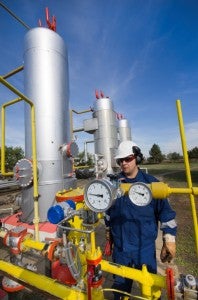 Science is a process of asserting a hypothesis, collecting data, presenting results, and then having those data and results tested by other researchers. Peer-reviewed journals routinely allow for comments on papers and responses by the authors precisely in order to ensure that knowledge evolves and the dialogue is part of the public scientific record.
Science is a process of asserting a hypothesis, collecting data, presenting results, and then having those data and results tested by other researchers. Peer-reviewed journals routinely allow for comments on papers and responses by the authors precisely in order to ensure that knowledge evolves and the dialogue is part of the public scientific record.
People paying close attention to the growing body of research on methane emissions from the oil and gas industry may note a recent exchange in Environmental Science & Technology (ES&T) between Mr. Touché Howard and a team of scientists lead by Dr. David Allen of the University of Texas. The studies by Allen et al. are among of a group of 16 studies on methane emissions from the natural gas supply chain being coordinated by Environmental Defense Fund.
ES&T published comments by Mr. Howard, who has worked on methane emissions quantification, regarding the two studies (here and here) authored by Dr. Allen et al. Howard cites several possible complications with the data used in the UT research, which he contends could have caused researchers to underestimate methane emissions: 1) Faulty in-line flow meters; 2) Sensor failure in the Hi-flow instrument; and 3) Potential reset of malfunctioning pneumatic controllers when installing flow meters.
In a reply comment, Dr. Allen and his coauthors outline why they believe Mr. Howard’s concerns are misplaced.
- Regarding sensor failure in the Hi-Flow instrument, Dr. Allen’s team tested the equipment – in the lab, in the field, and by cross checking data – and concluded this problem “did not significantly impact” their measurements.
- Regarding possible faulty meters due to chemical deposits during the testing process, Dr. Allen et al did find issues with one of three pieces of equipment, but not with the other two, and made corrections in the data from the one affected unit.
- Regarding the possible resetting of the operating equipment they were testing, Dr. Allen et al say that researchers on site observed no such action and say there is no evidence to suggest the problem occurred.
EDF is pleased to see that the methane work we’ve sponsored is receiving scrutiny by the research community, and we are equally pleased that the lead researchers we’ve chosen to work with are taking these critiques seriously and are taking the necessary steps to recheck their work. We believe good environmental policy begins with good science, and are glad to see the scientific process working here.
NOTE: This blog post was updated on May 27 to correctly characterize issues with in-line flow meters and the Hi-flow instrument.









